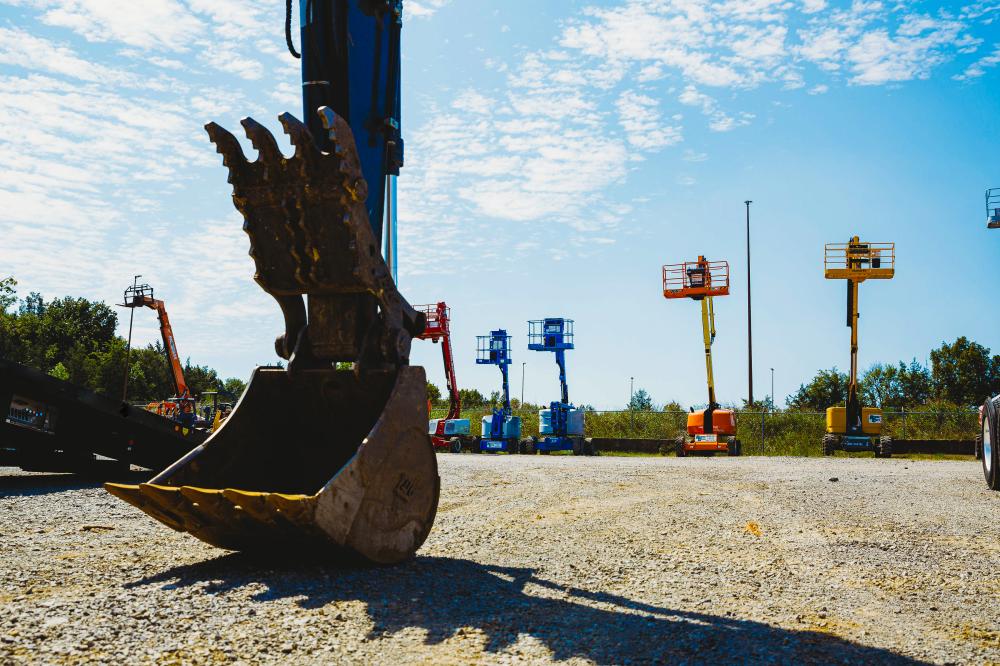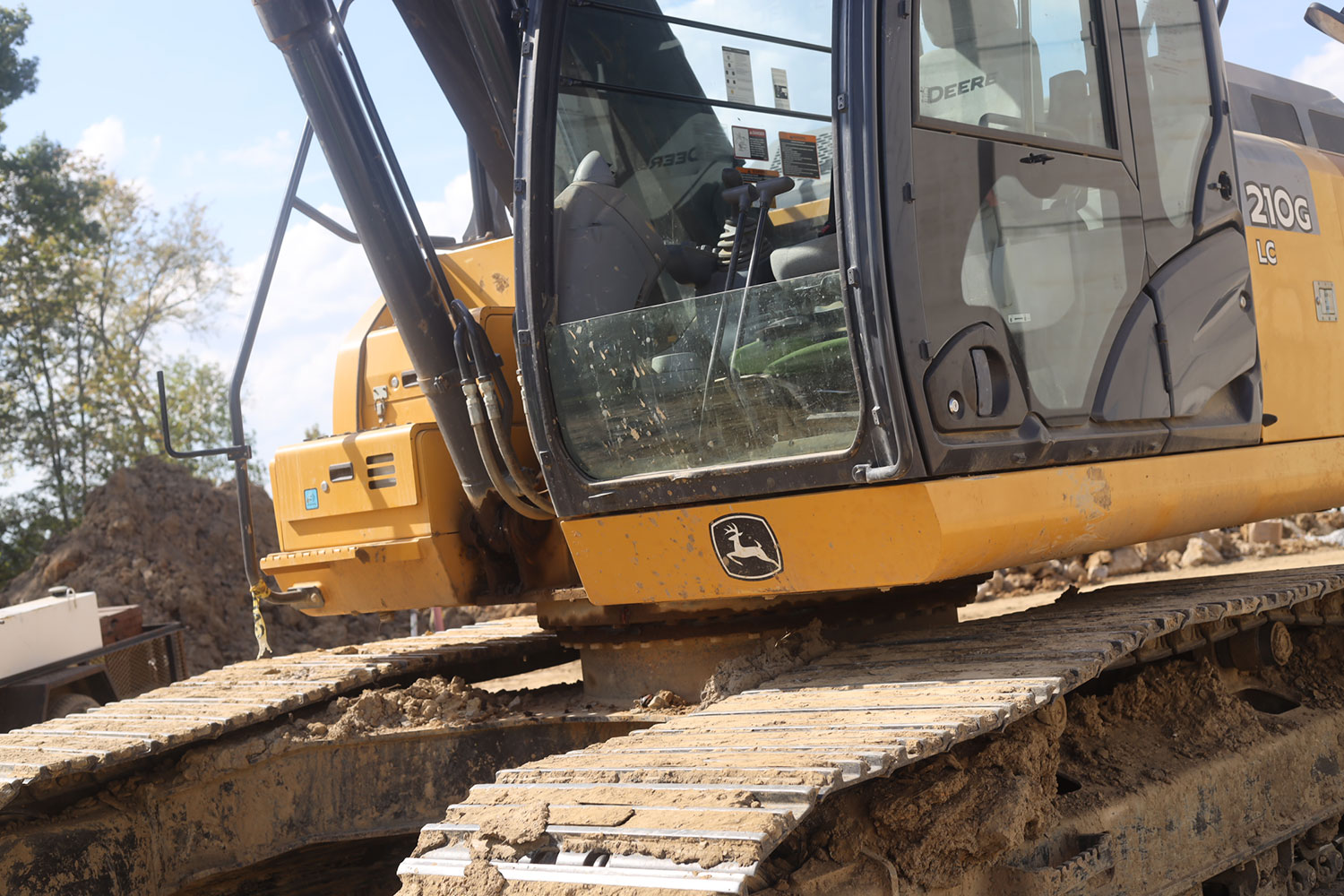Optimize Efficiency with Our Construction Equipment Rentals: From Boom Lift Rental to Mini Excavator Rental
Optimize Efficiency with Our Construction Equipment Rentals: From Boom Lift Rental to Mini Excavator Rental
Blog Article
Crucial Tips for Managing Heavy Devices Rental Contracts and Logistics Properly
Effectively managing heavy tools rental agreements and logistics is essential for the success of any kind of task that relies on these sources. An extensive understanding of rental terms, paired with precise evaluation of tools demands, lays the foundation for desirable negotiations.
Understand Rental Terms
Understanding rental terms is important for successful hefty tools management. Familiarity with the particular regards to a rental arrangement can significantly impact functional efficiency and cost-effectiveness. Key elements commonly include rental duration, settlement structure, and upkeep duties. The rental period defines the timeframe for which the equipment is leased, influencing budgeting and job timelines. Repayment structures commonly differ, encompassing daily, weekly, or monthly rates, which necessitate exact estimations to stay clear of unanticipated expenditures.
In addition, it is critical to understand the upkeep commitments detailed in the contract. Normally, rental business preserve the devices, yet recognizing who is accountable for routine checks and repairs is essential to stop functional interruptions. Furthermore, terms may consist of provisions concerning liability for problems or theft, which can have severe economic effects if not effectively recognized.

Assess Devices Needs
Analyzing tools needs is an essential action for any type of task supervisor intending to maximize source allocation and improve operational effectiveness. This procedure involves an extensive evaluation of the project demands, consisting of certain tasks, timelines, and the sort of tools essential to achieve preferred outcomes.
Begin by recognizing the extent of the job and the jobs that will certainly be executed. Consider variables such as the terrain, the range of procedures, and any kind of prospective difficulties that might influence equipment option. Engaging with team participants that will certainly run the equipment can offer important insights into functional demands and choices.

Next, assess the ability and capabilities of offered equipment options. It is necessary to match the appropriate equipment to the tasks available, making certain that it can manage the expected work without compromising safety or efficiency.
In addition, consider the rental period and regularity of use. Comprehending these aspects can help establish whether leasing or buying is the most cost-efficient option. By carrying out a thorough assessment of devices demands, project supervisors can make informed decisions that cause improved performance and reduced operational expenses.
Negotiate Properly
When the tools needs are clearly determined, the following step includes reliable arrangement with rental companies to protect desirable terms. A well-prepared negotiation technique is necessary for achieving the very best feasible bargain. Begin by looking into different rental business to recognize their prices structures, inventory accessibility, and online reputation. go to this site This understanding will equip you during settlements and aid you develop practical assumptions.
When approaching the arrangement table, be clear concerning your demands, consisting of the sort of devices, rental duration, and any kind of additional solutions you might need. This openness enables rental firms to give customized options that can meet your specific demands (equipment rental company). Do not hesitate to ask for price cuts, particularly for long-term leasings or bulk orders, as lots of companies want to supply concessions to safeguard larger agreements
These factors can dramatically impact the general cost and ought to be clearly laid out in the rental contract. Make sure that all agreed-upon terms are recorded in creating to prevent misunderstandings and protect your passions throughout the rental duration.
Coordinate Transport Logistics
Collaborating transportation logistics is a critical aspect of handling heavy tools rental contracts. Reliable transport ensures that tools is supplied promptly and in optimum condition, consequently lessening downtime and improving job efficiency. To achieve this, it is vital to establish an extensive logistics plan that lays find here out the whole transport procedure from pickup to shipment.
Begin by examining the particular transport demands based upon the kind and dimension of the equipment involved - heavy equipment rental. Engage with reliable transport suppliers who concentrate on hefty tools to guarantee they possess the needed proficiency and tools, such as flatbed vehicles or specialized trailers. Review variables such as weight limitations, route constraints, and needed permits to avoid unanticipated hold-ups
In addition, keep open communication with both the rental company and the transport service provider to coordinate timetables successfully. Confirm all details, consisting of pick-up and drop-off times, to guarantee every person is aligned and prepared. Develop contingency plans to address any kind of potential disruptions, such as negative weather or website traffic conditions, which may influence the transport timeline. By meticulously collaborating transport logistics, you can copyright the honesty of your rental arrangement and facilitate smooth job implementation.
Plan for Maintenance and Support

Moreover, it is important to connect directly with the rental provider relating to upkeep obligations. Some agreements might include upkeep as part of the rental solution, while in other instances, the onus might drop on the renter. Comprehending these terms will help avoid unforeseen costs and obligations.
On top of that, having accessibility to technical assistance can be indispensable. Ensure that the original source the rental business supplies 24/7 assistance or an emergency situation get in touch with, enabling for swift resolution of any type of devices issues. Educating your team on correct tools usage and routine checks can likewise considerably improve functional performance.
Verdict
In final thought, effective administration of hefty equipment rental agreements and logistics joints on an extensive understanding of rental terms, exact evaluation of devices requirements, and skilled arrangement abilities. Highlighting clear communication with all stakeholders remains critical in browsing the intricacies of devices rental and logistics administration.
Properly managing hefty tools rental contracts and logistics is crucial for the success of any project that counts on these sources. By completely assessing and recognizing these rental terms, organizations can make educated decisions, minimize threats, and make certain that their heavy equipment monitoring lines up with project goals and economic restrictions.Coordinating transport logistics is an essential facet of handling hefty devices rental arrangements.In verdict, reliable management of hefty equipment rental arrangements and logistics joints on a complete understanding of rental terms, accurate analysis of equipment demands, and experienced settlement abilities. Emphasizing clear interaction with all stakeholders stays important in navigating the complexities of tools rental and logistics management.
Report this page